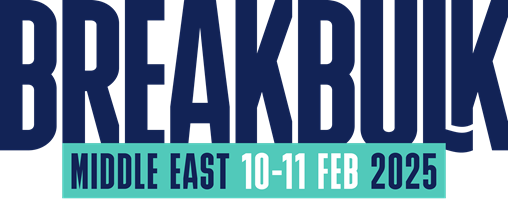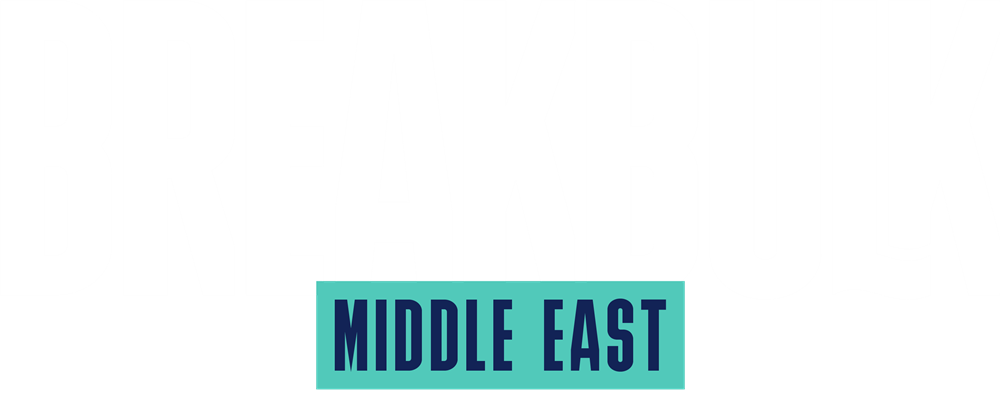A conversation with Höegh Autoliners’ head of Middle East Finn Roden who shares his expert view on when, where and what types of projects to expect in the region. Hear him live at Breakbulk Middle East 2019.
What is your overall assessment for project contract awards in the GCC for 2019? Will that change in 2020?
GCC project contract awards have been very light in the last quarter of this year. Looking at the overall economic conditions and oil pricing, and we anticipate more of the same in the first through third quarters of 2019. However, we do foresee improvement and possible contract awarding in late 2019 and into 2020. Oil revenues in the region and conflict stabilisation is the key. Many projects were put on hold over the last 2 years and we’re all waiting on contract awards from those. Bright spots include GCC rail which is again in discussions, various power projects in NEOM City in Saudi Arabia, and we’re seeing some movement on petrochemical and refinery projects that have the potential to lead to more manufacturing, and in turn, more logistics and transportation contracts, but that’s for 2020.
How does GCC project potential compare to other regions in the world?
There has been a malaise since the dip in oil prices in early 2016, but the potential is still massive. Actual project execution has been slow. Currently, from public data we’re seeing more contract awards in Southeast Asia and of course awards as a result of China’s One Belt, One Road initiative. But as I said, the potential in the GCC is massive – with just a little improvement in government and consumer confidence, along with a stable oil price, we’ll see contract awarded and projects executed.
What factors shape your assessment?
We look at the actual investments throughout the globe, the named projects and then the projects that have actually been awarded. We just haven’t seen a lot of investment or procurement for those named projects in the GCC.
What are the top three questions a CEO should ask when trying to determine where to focus the company’s business development resources?
For us, coming from the perspective of a ro-ro carrier, our ability to carry automobiles and machinery, as well as traditional breakbulk project cargoes on roll trailers, we first have to ask, “What is our product and what are our strengths?
Then we ask, “What are the opportunities within our strengths in terms of cargoes and geography? Specifically, where is the sourcing going to be, the end use?
Finally – the most important question for me – “Are we injecting ourselves into the supply chain discussion in the most productive way?” As ro-ro carriers we offer a lower risk solution with covered transport and no lifting, but when forward engineers are working on their projects, logistics often comes later. So, we ask ourselves, “How can we inject ourselves earlier in the transport decisions made around cargoes we can carry?”
What sectors hold the most promise in terms of new contracts? Which countries?
We see the most business coming out of petrochemical and refinery projects. Obviously, with the GCC being the producer of the natural resource, it’s time to look at producing the products. Already, we’re seeing more petrochemical and refining projects being named.
With that, we’re seeing infrastructure projects being named, particularly outside the Emirates in Saudi Arabia. Oman is making a big push to diversify with projects around Duqm. We recently saw some power projects being named in Egypt. Projects still largely revolve around oil and gas, but projects are going beyond just the production of oil and gas and into the refining and manufacturing of products where oil is the resource.
For instance, in Saudi Arabia and Oman, they’re looking at mining phosphates. While these projects are driven by oil, we see a shift from upstream to downstream projects.
There are also opportunities around areas where conflict has stabilised, so there will be reconstruction. We see the easing of sanctions in Sudan and Ethiopia (whose economy is a bit of a bright spot) and Eritrea coming together. We’re looking to see how Ethiopia will rub off on Eritrea, especially with infrastructure projects. In the long term, Yemen, Iraq and Syria will have a need for reconstruction and there will be a lot of projects.
Myth or reality: There’s been lots of talk around the need for economic diversification in the GCC away from its heavy reliance on oil and gas. Is this a myth or is it really underway?
We believe that diversification is a longterm reality. If you look at UAE for example, Dubai has worked to diversifiy its economy and has years of experience, and we’re starting to see more from Abu Dhabi. We’re seeing diversification in Saudi Arabia with its 2030 plan and in Oman to help flatten the peaks and valleys of volatile oil prices.
While we haven’t seen the spike up in oil prices to refill the coffers since the low prices of 2016, we feel the petroleum revenues can really drive innovation in the region and turn it into a real incubator. Oil revenues in the GCC are Elon Musk’s Paypal with the potential to fuel innovative projects with the magnitude of a SpaceX.
RELATED SESSION
Monday, 11 February in the Conference Suite, Hall 8, Dubai World Trade Centre
12:00 – 12:45
Regional Outlook: View from the Top What is the economic outlook for the Middle East from the C Suite? Executive perspectives from key industry verticals will set the stage for two days of insightful content at Breakbulk Middle East 2019.
His Excellency Khamis Juma Buamim, Chairman, Dubai Council for Marine and Maritime Industries
Finn Roden, Head of Middle East, Höegh Autoliners
See the full agenda!


